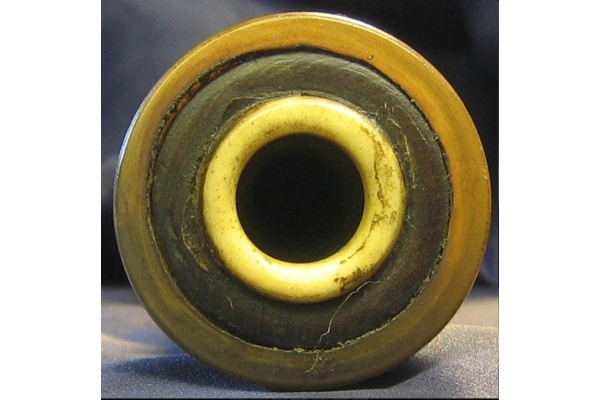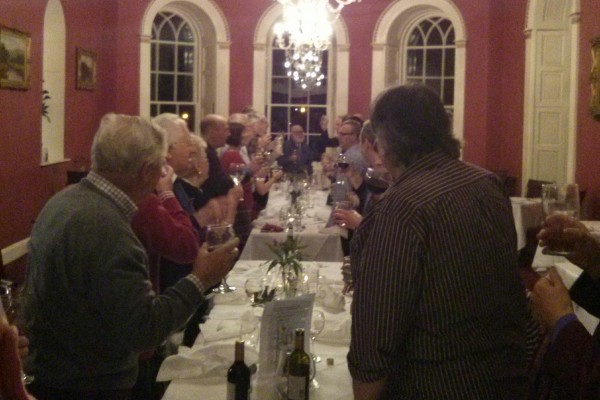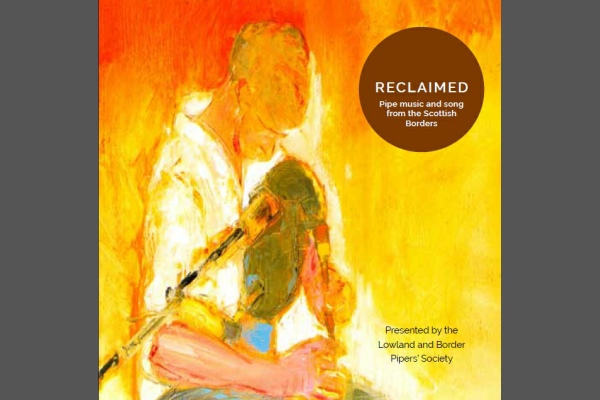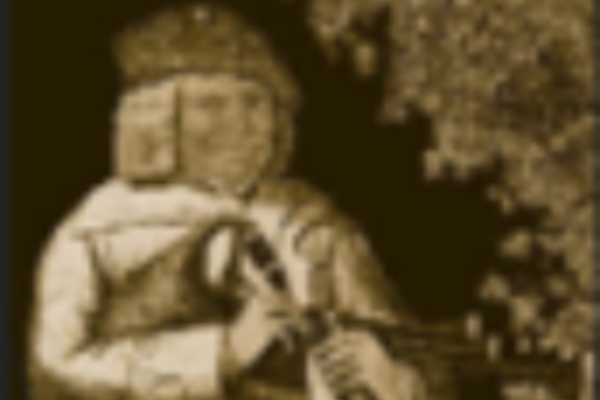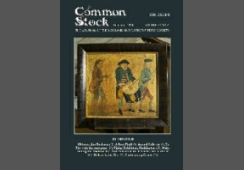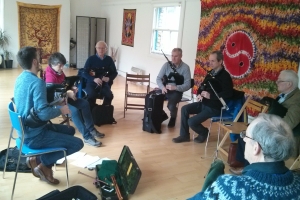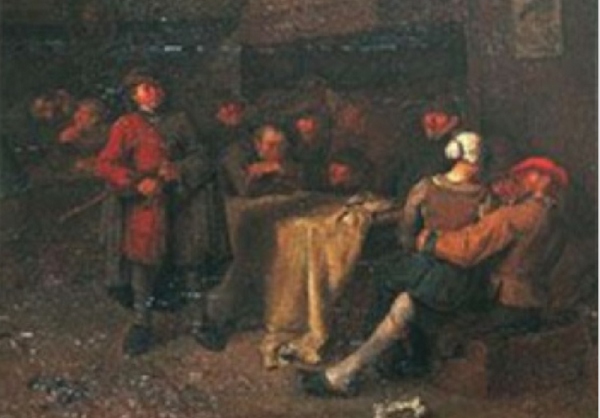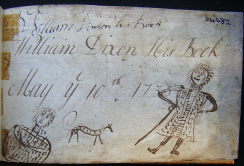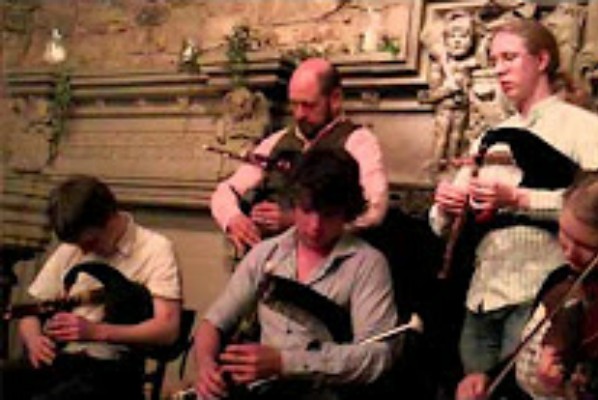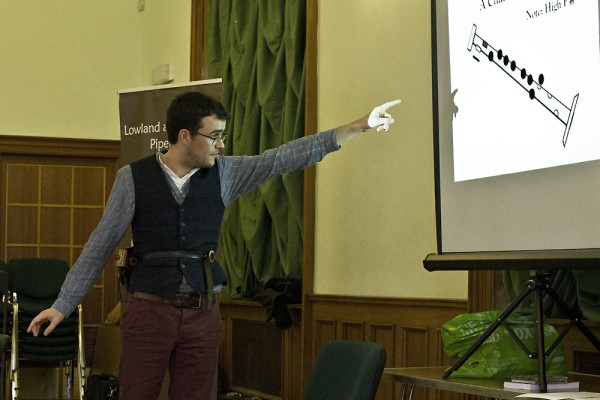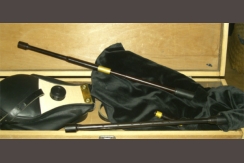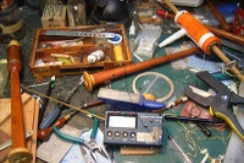Ian K.Murray
Feb 1934- September 10th, 2017
An appreciation by Julian Goodacre
I WAS SADDENED WHEN I HEARD THAT IAN K. MURRAY HAD DIED. He was familiar face at many of the LBPS events since the 1980’s as, despite coming from a strict Highland piping background and being a long-term member of The Piobaireachd Society, he had warmly embraced the bellows pipe revival and begun to play smallpipes. In fact, it was through his writing in Piping Times that I first became aware of his name long before I had actually met him.
In the mid 60’s he had written two outrageously funny accounts of the LBPS Competition, which I was then involved in organising. In my Welcoming Speech at one of the competitions at St Mary’s in the Cowgate I read out extracts from his accounts, completely unaware that he was sitting there in the audience. It was after this that I got to know him and enjoy his company.
He had a dry and incisive wit which was usually delivered in a deadpan manner. At first meeting this could be disconcerting if you did not notice the mischievous twinkle in his eye.
He often used to enter the LBPS competition and several times played with (the late) Jim Buchanan in the duet class. Jim and Ian were temperamentally completely contrasting characters, but they somehow managed to play together. On one memorable occasion however, they came completely unstuck.
This is how I recall it. They were playing a duet from a single sheet of written music, with Jim on an A chanter and Ian on a D chanter. One of them announced the tune and they struck up and it sounded bad, I mean, really bad. After ploughing on for some discordant bars, they stopped, had a discussion about which part they thought that they should be playing and then started again and…….. it was equally unpleasant! They then stopped again and had a light-hearted argument about which part the other one was supposed to be playing. Jim was all smiles and Ian appeared indignant. I think they finally got it sorted out and carried on to the end. It was a priceless moment which no one who was there will forget, and, like all the entries, it was recorded. I do hope that in decades to come some researcher in The School of Scottish Studies Sound Archive will enjoy it as much as we did at the time.
I last saw Ian earlier this year. He and his wife Elsie came to my workshop for some maintenance on his smallpipes. He was very frail and sometimes it was hard for him to find the right words, but I could see that special Ian K spark and twinkle was still there.
It was then that he gave me a copy of his book The Chanter and the Pen, a collection of his contributions from the 1980’s and 90’s to The Piping Times and the Scotsman. This book was published last year by The Glasgow College of Piping and it opened my eyes to the breadth of his lifelong interest and devotion to piping. As Iain MacInnes writes in the Forward ‘He touches on many topics which still have currency- poor performing and listening conditions, busking, sexism, plastic reeds, overpowering snare drums…’
I learnt a lot more about him from reading this book. He was a lawyer by profession and had a wonderful ability to express himself. His articles are insightful, sometimes challenging, amusing and occasionally wickedly funny!
Here are some extracts from those two articles from 1986 and 1987.
1986. What of the competition itself? It is the antithesis of a competition for the Highland pipe. There is a relaxed informal atmosphere. … the judges are almost invisible.
Since there is freedom to choose their tunes and freedom to express them, the audience is hearing many compositions for the first time. No one feels constrained to say, “ I was taught to play the second line with an emphasis on the E”. The corporate intake of breath which accompanies a choke lasting a split second has no place in the Lowland brigade.
Because there is not the weight of tradition which lies heavily on the shoulders of the Highland competitor nor the great performances of the past against which to make a comparison, the Lowland piper is at liberty to take liberties and make a kirk or a mill of the performance. If a mill is made he or she doesn’t leave the boards disconsolately and head for the bar. They have started so they will finish and, having no blowpipe, can grin at the same time.
“But what about dress and deportment??” I hear you cry. Well, no competitor looked like a refugee from the Tartan Lad or Alexander Brothers. All that appears to be required is for the competitor to wear one or more of the following: a pair of jeans, John Lennon type spectacles, a hand knitted sweater and a beard. Some of the more ambitious sported all four.
1987. This year there was more participation. New faces appeared with new music and the standard was generally high. The competitors actually played to the audience- a practice which I can recommend to the competitors in the Highland tradition who prefer to entertain the back wall of the platform.
There were four competitors for Pipe and Song, three of whom couldn’t sing for toffee. This left Andy Hunter whose Gallowa’ Hills was in a class of its own.
There is also a competition for new music and we heard how far the bagpipes can be extended. Hamish Moore’s composition sounded positively Middle eastern (dare one say Moorish) and Jon Swayne moved further east with an offering that would have had all the cobras in India louping out of their baskets.
As the compere seemed to commune with himself in preference to communicating with the audience, it was not always easy to know who the competitors were and what they were playing. Even the judge at one event didn’t know- two of the competitors were referred to as “the lassie” and “thingmy”, respectively. This is all part of the informality of these occasions which included a winner receiving a prize carrying an infant (thus making it difficult to salute in accordance with the Drill Manual) and a judge in creosote spotted breeks.
(I used to compete and judge at the competition I strongly suspect that I was implicated in his references to toffee, creosote and possibly even a mill!)
Ian and Elsie were married for 51 years and they have two children. On behalf of the Society I want to express our deepest condolences for their loss. Part of his legacy to the world however is that though he is no longer with us, he can still make us laugh. Thank you, Ian.

Ian and Jim at the 1998 LBPS Annual Competition, Edinburgh
